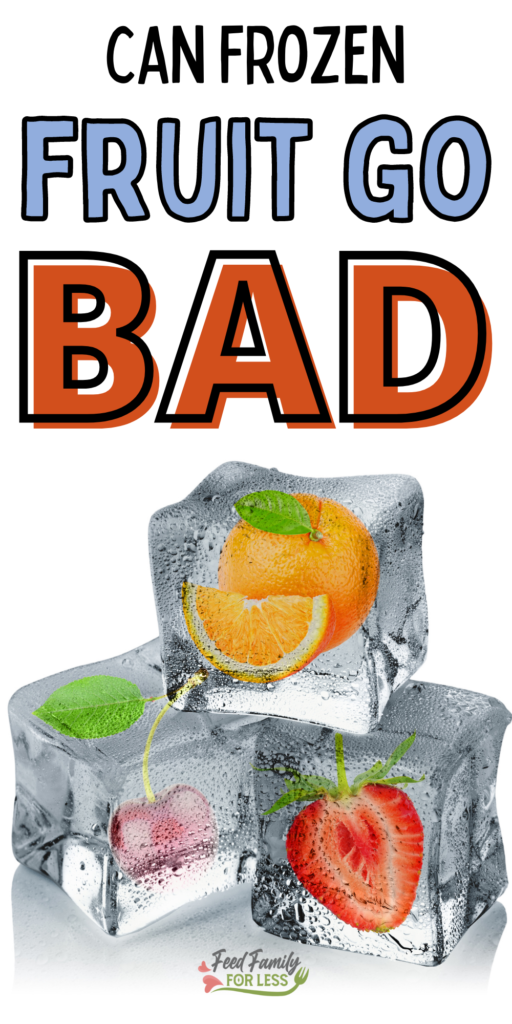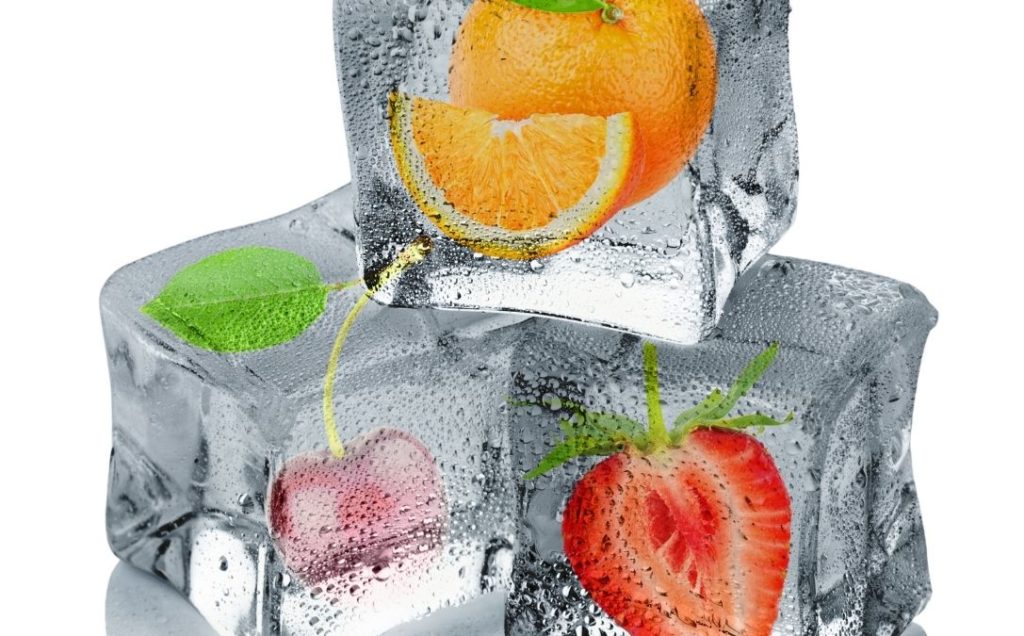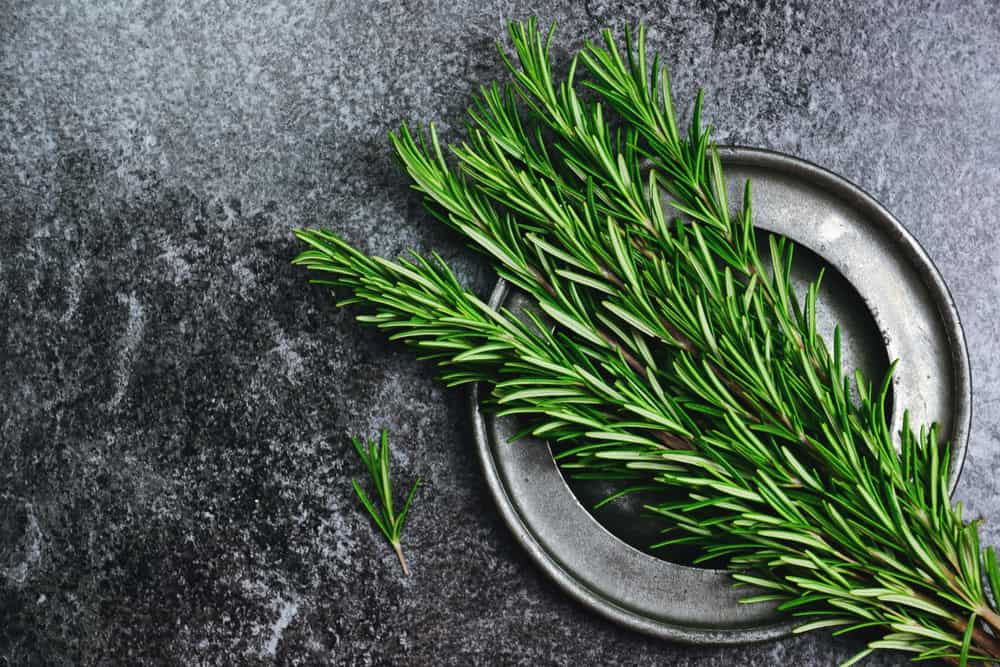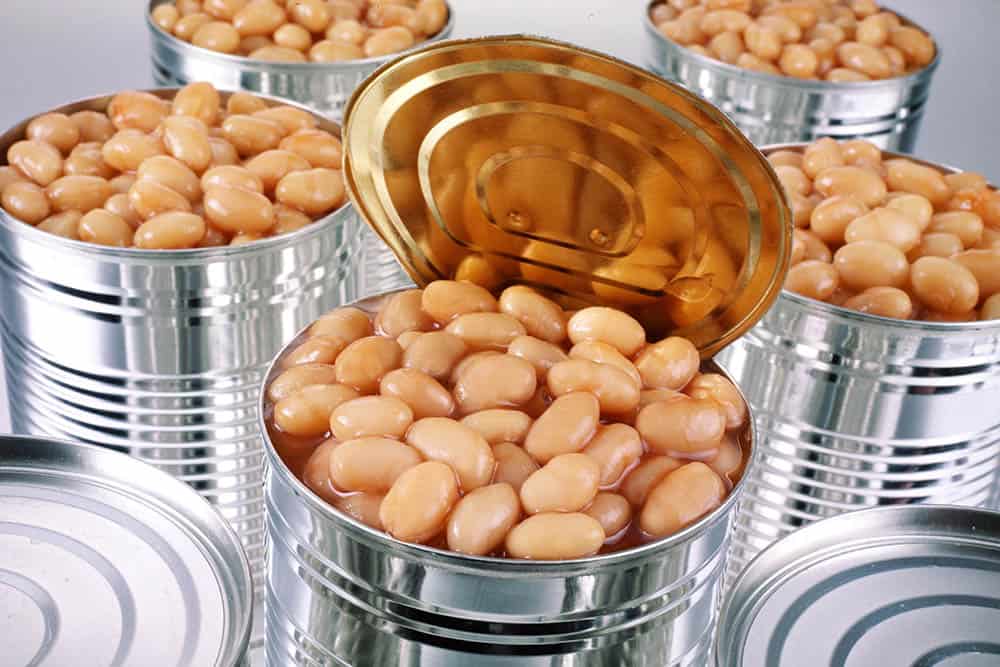Freezing fruits will keep them longer, but can frozen fruits go bad? Or how long can frozen fruits last? These are some of the questions I have come across in most forums.
Fruits can last up to 9 months if you keep them frozen, but their shelf life depends on many factors, such as the method of preparation, how you store the fruit, and the best by date.
This post will answer whether frozen fruits can go bad and other related questions about frozen fruits. So if you want to know how to store fruits, keep reading this post to find out more.
This post may contain affiliate links. Read my disclosure policy here.
Can Frozen Fruit Go Bad?
Yes, frozen fruits will go bad after a certain period if not properly stored. Fruits have a best by date instead of expiration or use by date. This means that you can use frozen fruits after their best by date.
If you want to keep your fruits for longer, consistently freeze them, and they can last up to 12 months if properly stored. Even after the 12 months have elapsed, you will still be able to use your frozen fruits.
How to Tell if Frozen Fruit Is Bad or Rotten
Fruits offer many health benefits; for example, fruits are an excellent source of vitamins, fiber and offer tons of minerals to the body.
Besides offering the body vitamins, fiber, and minerals, fruits also provide various antioxidants, such as flavonoids, but how will you tell if fruits are rotten?
A dull color with a frostbitten appearance is one of the signs of rotten fruit. If the fruit has been for quite too long, you will notice some white-colored ice.
You don’t have to throw away the fruit if there is too much white-colored ice on it. Instead, you can run cold water over it, although the taste will be a bit different.
However, you also need to check if the fruit has a frostbitten appearance. In case freezer-burned, the fruit will have a different texture and have a white look.
Below are other signs that your frozen fruit is bad or rotten:
1. Dark Brown Spots
Some people enjoy bananas with dark brown spots, while others prefer to have green bananas.
Brown bananas are rich in antioxidants than yellow or even green bananas and can solve digestive issues. Either way, keep an eye on your bananas and ensure that they are not leaking, mushy or moldy.
If your bananas possess any of these characteristics, your bananas have gone bad or are rotten. Before your bananas can reach this far, use them and make some banana bread – at least so that they don’t go to waste.
2. Bruised Apples and Pears
Bruised pears and apples are safe to eat, but there are a few more signs you need to check out before you are sure whether your pears and apples are safe to eat or they have gone bad. Below are those signs you need to check to be sure:
- If there is a discoloration on your fruit’s skin, peel that part and check if the part underneath the peeled section is still brown. If yes, your pears and apples are not safe to eat anymore
- Confirm if there are no insect holes in the apples or pears because this can make the fruit moldy over time.
- Try squeezing the fruit and see if some juice is coming out. If yes, your pears or apples are not safe to consume anymore.
3. Squishy or Wrinkly Grapes
You probably like grapes, and I also do, but if you have some that are squishy or wrinkly, your fruit is beginning to spoil. If your grapes are not moldy, you can eat them, though the taste will differ from the grapes’ usual taste.
4. Squishy Blueberries
It can be quite hard to tell if your blueberries are bad, especially if there are no visible spots or molds on them. However, if they are wrinkly or are producing leaking juice, your berries are beginning to go bad.
Because berries can quickly go bad, especially if you stock them up in your kitchen during the summer, freezing and storing them will be a good idea to help keep them longer.
5. Wrinkly Strawberries
Good strawberries are bright, smell sweet, and firm. Likewise, if your strawberry appears wrinkly or discolored, that’s not a sign your strawberry is rotten. However, your strawberries will be considered bad or rotten if you can spot mold on the outside or inside.
If you see any spot, either on the outside or inside your strawberries, use your berries within a day. And because the taste will be affected by this, it’s better to use them for baking purposes.
6. Dates Smelling Like Alcohol
Dates are delicious, but they also look so weird, which is why most people can’t figure out if they are good to eat. To know whether they are bad or still safe for consumption, you need to open it up and check if there is any powder or black dust on the inside of your dates.
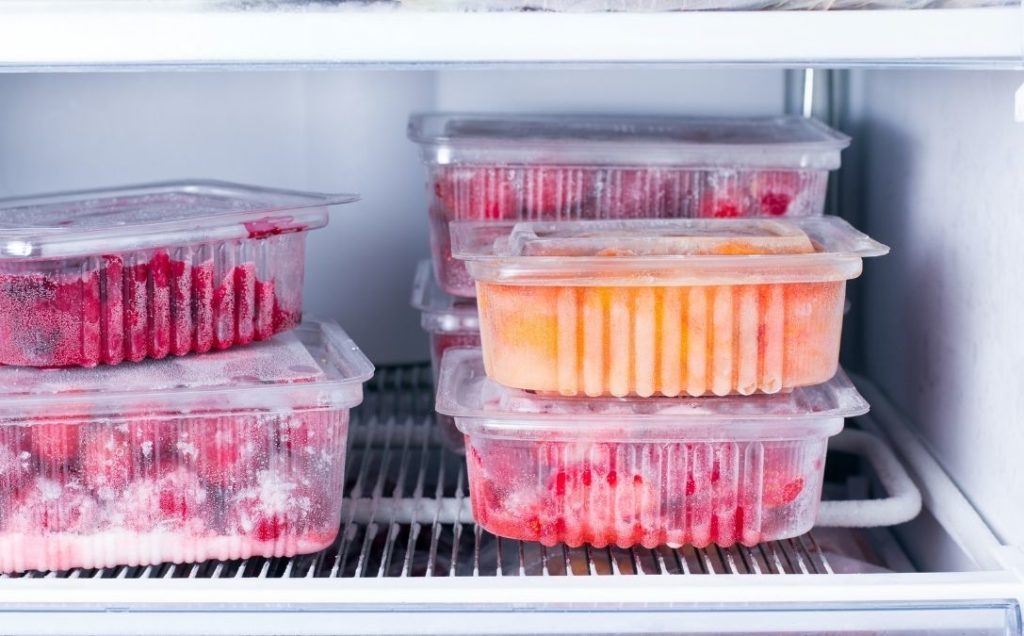
How to Properly Store Fruits
Storing fruits should be reasonably straightforward, but it’s also possible that some people may not know the best ways to store their fruits.
You can store your fruits in many ways – from refrigeration to freezing. To help you understand how you can store your fruits, let’s go deeper and discuss some of the ways:
1. Store Your Fruits In a Cool, Dry Place
Foods and fruits, such as potatoes, bananas, and tomatoes, should be kept in a cool, dry place and not in the fridge as most people do.
You can equally keep mushrooms in a cool, dry place, but you should only wash them when you need to use them.
Eggplant should also be stored in a cool, dry place. However, ensure that you have used it up within a few days and not longer.
2. Use the Fridge to Store Your Fruits
Your apples should be stored in the fridge because they can soften ten times when stored at room temperature. Likewise, store your fruits in the refrigerator.
Use a crisper drawer to store your produce and keep moisture in for freshness.
Keep your Asparagus wrapped in a moist paper towel or in the refrigerator. Alternatively, you can stand up Asparagus in a glass with cold water wrapped in a damp paper towel.
You can store carrots in the refrigerator until when you want to use them.
Berries can be kept fresh and longer when kept in the refrigerator. Wash your berries before you can use them.
You can store your berries – blueberries, strawberries, and grapes in a plastic bag as they release moisture and keep your fruits fresh.
Wash lettuce before you can refrigerate them. Another way is to keep the leaves dry and then store them in a plastic bag with some paper towels.
3. Keep Your Fruits in the Freezer
Freezing your fruits at home is one way you can preserve and keep your produce for longer while still maintaining the quality.
However, specific foods that are not suitable for freezing – lettuce greens, potatoes, Belgian endive, radishes, sprouts, shouldn’t be frozen.
4. Keep Your Fruits at Room Temperature
While most fruits are better stored in the refrigerator, some like onions and garlic need to be stored at room temperature.
As I had earlier stated, tomatoes shouldn’t be kept in the fridge but at room temperature. Remember to wash before using your tomatoes, though.
You can keep pears, mangoes, peaches, and palms at room temperature to ripen in a paper bag. If you need any of these to stay longer, keep them in the refrigerator.
If you have pineapples, store them upside down at room temperature to ensure that sweetness spreads across the entire fruit. Alternatively, you can store your pineapples in the fridge.
Finally, you can keep watermelons and cantaloupe at room temperature, but it’s essential to note that cantaloupe will ripen quickly when stored at room temperature.
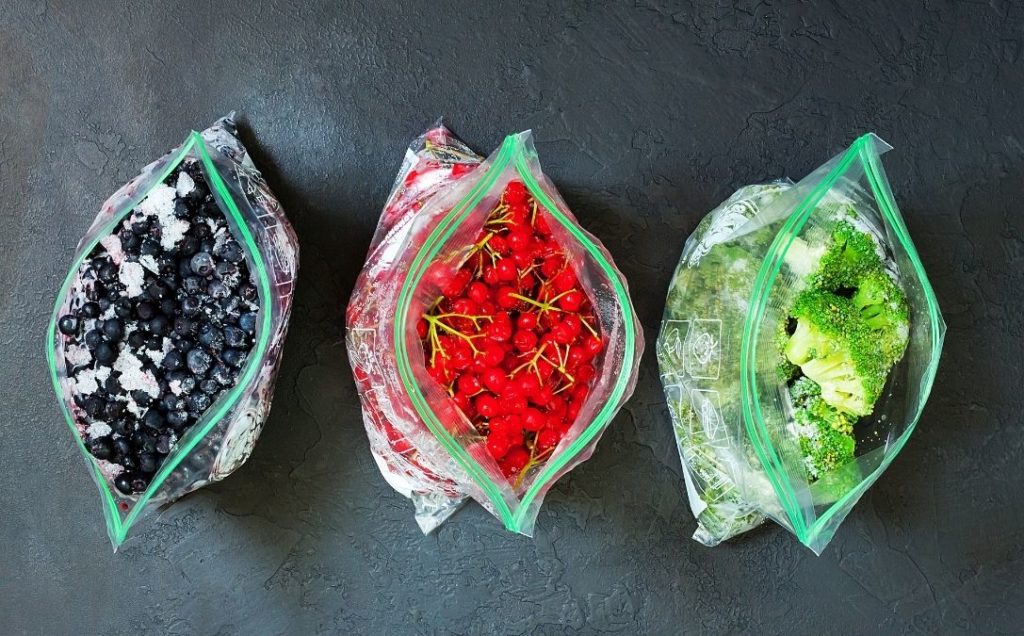
Related Questions
1. Is It Ok to Eat Frozen Fruit With Freezer Burn?
Yes, you can still eat frozen fruit with freezer burn, even though they might have an unpleasant texture and a different flavor. If you set your freezer to 0°F, it will be quite hard for pathogens and other harmful bacteria to grow, making frozen fruits with freezer burn safe to eat.
2. How Long Can Frozen Fruit Last in the Freezer?
You can freeze fruits and last for up to 8 months. However, ensure that you are keeping the fruits at a constant temperature and not continuously refreezing them And because fruits have best-by dates, you can use them, even after this date.
3. Are Frozen Fruits Healthy?
Yes, frozen fruits are still healthy with lots of nutritional value. Most people think that frozen foods are not healthy, but the difference between fresh and frozen fruits is convenience, so don’t limit yourself. Use whatever you can come by quickly.
4. Is Frozen Banana Healthy?
Yes, frozen bananas are still healthy as freezing bananas retain all the nutrients while keeping them fresh. Frozen bananas still retain the most crucial vitamins like magnesium, copper, vitamin B6, manganese, and vitamin C.
5. Should You Wash Frozen Fruit?
Yes, you need to wash frozen fruits before you use them. Sure, they are always washed before packaging, but there is still a need to wash them to remove any dirt or bacteria.
Final Thoughts
Fruits are fantastic and offer a ton of health benefits. However, due to their nature, they can go bad very fast if not stored properly. I have explained some of the ways you can store and keep specific fruits longer, which can hopefully help you store and keep your fruits fresh. Please leave a comment with any questions or if you need me to explain a concept to help you better store your fruits.
